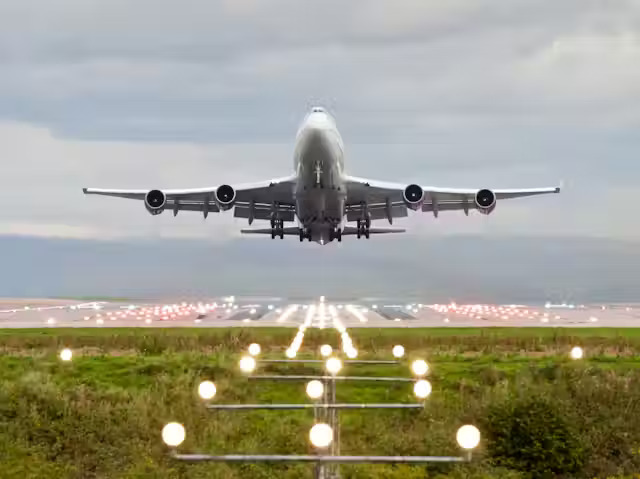The global aviation industry is experiencing a remarkable comeback, with July 2025 marking a significant milestone in post-pandemic recovery. Recent data reveals encouraging trends that indicate the aviation sector’s resilience and growing passenger confidence in air travel.
Breaking: 4% Surge in Global Passenger Demand
The latest industry statistics show a robust 4% year-on-year increase in global passenger demand for July 2025. This growth, measured through RPK (Revenue Passenger Kilometers), demonstrates the aviation industry’s steady climb back to pre-disruption levels.
Key Performance Indicators
- Total demand: Up by 4.0% compared to July 2024
- Total capacity: Increased by 4.4% year-on-year
- Load factor: Slight decrease of 0.4 as a percentage to 85.5%
The passenger load factor remains strong despite the minor dip, indicating healthy demand across global routes. Airlines are successfully balancing capacity expansion with passenger volumes.
International Markets Drive Recovery Forward
International air transport emerged as the primary growth engine, with a remarkable 5.3% increase in demand compared to July 2024. This surge reflects renewed confidence in cross-border travel and tourism.
Regional Performance Breakdown
Asia-Pacific: Leading the Charge
The Asia-Pacific region demonstrated exceptional performance with passenger demand increasing by 5.7%. With a capacity rise of 5.6%, the region maintained a solid load factor of 83.2%.
What is the IATA perspective on Asia-Pacific growth? Industry analysts point to the reopening of popular Southeast Asian destinations and Pacific Islands as key drivers.
Europe: Steady and Efficient
Europe showed moderate growth of 2.9% with capacity increasing by 3.2%. The region maintained the highest load factor at 88.0%, demonstrating operational efficiency. Major tourist destinations including Spain, France, and Italy are experiencing increased air arrivals.
Latin America and Caribbean: The Surprise Winner
This region posted the strongest demand increase at 7.2%, with capacity expanding by 7.5%. The load factor stood at 85.7%, reflecting the growing appeal of Caribbean beach destinations and resort tourism.
Is Middle East in Asia for aviation purposes? The Middle East, treated as a separate region by IATA organisation, recorded 5.4% demand growth with a load factor of 83.8%.
North America: Mature Market Stability
North vs South America data shows North America with modest 1.9% growth but the highest international load factor at 87.5%, indicating market maturity and efficiency.
Domestic Markets Show Resilience
Domestic travel, representing 38.2% of the global market, grew by 1.9% with increased capacity of 2.4%. Key highlights include:
- Brazil: 9.4% domestic growth showcasing improved internal connectivity
- China: 3.8% growth in the world’s second-largest domestic market
- United States: 1.5% growth in the largest domestic market by volume
- Japan: 2.9% demand growth despite capacity adjustments
Understanding Aviation Metrics: What Do These Numbers Mean?
For those asking “what is demand factor” in aviation, here’s a breakdown:
- RPK (R.P.K): Measures actual passenger traffic
- ASK: Available seat kilometers indicating capacity
- PLF: Business occupancy load factor showing utilized capacity percentage
The factor demand relationship demonstrates how airlines balance supply and demand to optimize operations.
Tourism Industry Benefits from Aviation Recovery
The passenger tour 2024 trends continue into 2025, with international growth directly supporting:
- Hotel occupancy rates
- Tourism receipts
- Local economic development
- Cultural exchange opportunities
What is the IATA role in this recovery? The International Air Transport Association (I.A.T.A) continues monitoring these trends, providing crucial data for industry planning.
Regional Market Analysis: Who’s Flying Where?
Market Share Distribution (2024 RPK):
- Asia-Pacific: 33.6%
- Europe: 26.7%
- North America: 22.9%
- Middle East: 9.4%
- Latin America: 5.3%
- Africa: 2.2%
Challenges and Opportunities Ahead
Despite positive growth, the aviation industry faces ongoing challenges:
- Higher fuel prices impacting operational costs
- Infrastructure constraints at major airports
- Geopolitical risks affecting route planning
- Visa requirements IATA tracking for seamless travel
However, industry resilience shines through with airlines adapting to meet growing demand while maintaining safety standards.
Looking Forward: What’s Next for Global Aviation?
The July 2025 data suggests sustainable growth momentum continuing through the remainder of 2025. IATA flights data indicates new routes opening and frequency increases on popular sectors.
What is strong America ltd perspective on this growth? While individual carrier performance varies, the overall Latin for strong recovery trend suggests positive momentum across all regions.
Industry experts at IATA look up services and IATA air traffic analysis predict continued expansion, with IATA numbers supporting optimistic forecasts for international connectivity growth.
Final Thoughts
The aviation industry’s July 2025 performance demonstrates remarkable resilience and adaptability. As passenger confidence returns and new destinations become accessible, the symbiotic relationship between aviation and tourism continues strengthening global economic recovery.
The data clearly shows that whether passengers are seeking business travel efficiency or leisure exploration, airlines are successfully meeting evolving demand patterns. This positive trajectory bodes well for continued growth and innovation in global aviation.
Stay updated with the latest aviation insights and industry analysis from The Inspiring Insight for comprehensive coverage of global travel trends and market developments.

